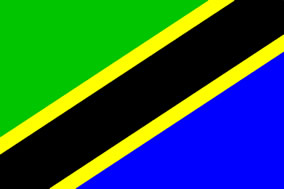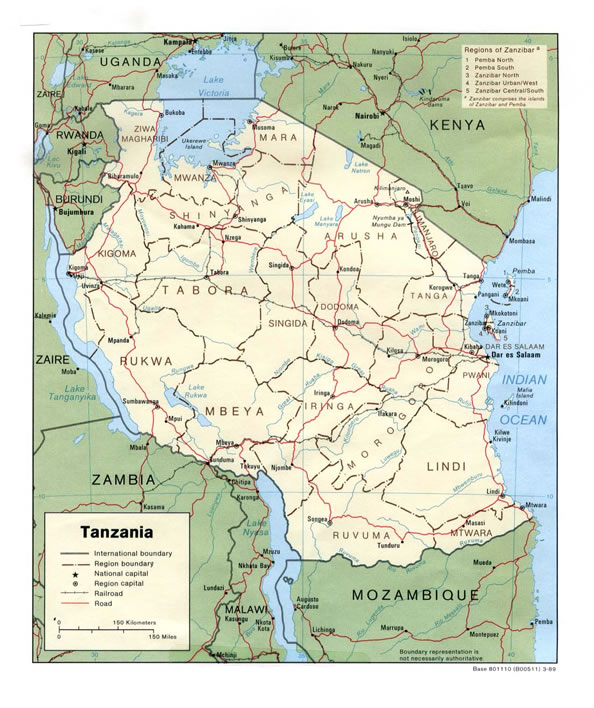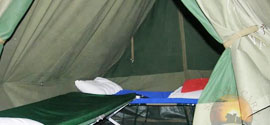Travel tips | About Tanzania
Tanzania is the cradle of mankind for it was here, in the Olduvai Geoge, that Dr Louis Leakey discovered the fossilized remains of Homo habilis, or( handy man) calculated to be 1.75 million years old and the forerunner of modern man. Tanzania was occupied by various African tribes most recently the Masai from Kenya, who have retained their proud traditions. Arab merchants visited the coast some 2,000 years ago and settled in Zanzibar around the eighth century AD later establish trade routes into the interior. |
 |
The intermarriage of Arabs and local people created a new people with their own language- Kiswahili ( Swahil ) whose word for Journey – Safari has become the International description of a trip into the Wild.
The Portuguese established temporary settlements in the 16th century, supplanted by the Omanies in the late 17th century who developed the infamous slave trade. The scramble of Africa by the European powers at the end of the 19th century led to occupation of the mainland by Germany although Zanzibar become a British protectorate. After World War 1, Germany was forced to surrender its territory to the British. Tanganyika, as the mainland was then known, achieved independence in 1961. Zanzibar become independent two years later and shortly afterwards joined with the mainland to become the United Republic of Tanzania.
GEOGRAPHY :
Tanzania covers 937,062 sq km making it the largest Country in Eastern Africa. Just south of the equator, it borders Kenya and Uganda in the north, United republic of Congo, Rwanda and Burundi in the west, and Zambia, Malawi and Mozambique in the south, and is therefore a splendid center from which to explore eastern, central and southern Africa. Through the interior runs the Great Rift Valley, that vast fault line down the spine of Africa that, in Tanzania, has created many fascinating topographical features such as the Ngorongoro Crater Serengeti and Lake Tanganyika. The central plateau ( 1,200mabove sea level ) is a huge expanse of Savannah and sparse woodland. To the north, the 5,890-metre( 19,340 ft ) Mount Kilimanjaro rises the highest Mountain in Africa. While the interior is largely arid, the 800 Kilometer coastline is lush and palm- Fringed as are the Islands of Zanzibar, Pemba and Mafia.
Climate: Tanzania’s climate is predominately tropical. Coastal areas are usually hot and humid, but on the beaches a sea breeze cools the air considerably. The average day temperature is 30°C. Tanzania has two rainy seasons – the long rains from late March to June and the short rains from November to January.
The long rains fall in heavy downpours, often accompanied by violent storms, but the short rains tend to be much les severe. The hottest time of the year is from December to March, before the long rains begin. The coolest months are June, July and August, when the weather is often overcast. In high-altitude areas such as Kilimanjaro and the Ngorongoro Highlands, temperatures can fall below freezing.
Entry requirements: A valid passport. Most visitors to Tanzania require a visa to enter the country. Three month single-entry tourist visas are available at Tanzanian embassies in your country, price subject to nationality. Contact your local embassy.
Airport tax: Departure tax from mainland Tanzania is included in the price of your ticket, however in Zanzibar there is a departure tax of US $30 payable at the airport. There is a TSH 5,000 (approx US $5) tax levied on passengers within Tanzania.
Official languages: Kiswahili and English
Currency: The Tanzania shilling (Tsh or TZS), divided into 100 cents, is the national currency.
Banking: Banks and bureau de change are available at airports and in all major towns. Banking hours are from Monday – Friday 8.30am – 3.00pm, Saturday 8.30am – 1.30pm. A few branches in the major towns are open until 4.00pm. Please note that banks are closed on Sunday.
Health: Tanzania is located in a tropical climate with different bacteria, flora, and fauna than most visitors are accustomed to, so it is advisable to take a few health precautions when traveling to make sure that your trip goes as comfortably and smoothly as possible. Malaria is usually top on the list of visitors’ worries, and prevention goes a long way towards keeping you protected. Make sure to visit your doctor to get a prescription for de anti-malarial drugs the best suit your health and condition – there are some very good ones available on the market. The yellow-fever vaccination is no longer officially required when entering Tanzania, (however this is still a requirement if you wish to visit Zanzibar). Other vaccinations should be considered, for more information, contact your doctor well in advance of your visit.
Security: Tanzania is a safe country to travel in. Tanzanians are warm-hearted and generous people and are eager to help visitors get the most out of their stay. Tanzania is a politically stable, multi-democratic country. As in all countries, a little common sense goes a long way and reasonable precautions should still be taken, such as locking valuables in the hotel safe and not walking alone at night.





